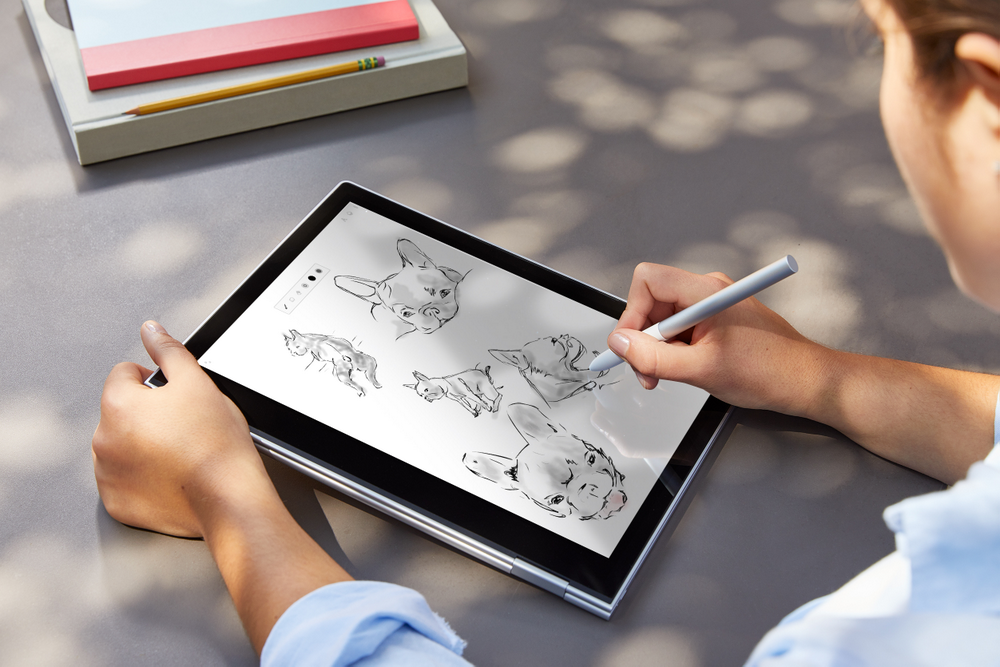
With the launch of Chrome OS tablets, Google is going all-in with touch support by adding a tablet mode to its operating system. Although the platform was designed around a keyboard and mouse interface when it launched, Google has slowly embraced more touch features over the years. Most recently, Acer announced the Chromebook Tab 10 as the first Chrome OS-powered tablet in late March, and we now have a little more information on how Google plans to optimize Chrome OS for tablet use.
According to a report on XDA-Developers, code within Chrome OS reveals that device manufacturers can automatically enable a full-screen app launcher in tablet mode, Currently, the Chrome OS app launcher shows just one row of recently used apps along with a search bar at the top, but the new tablet-optimized launcher would look more like the app drawer on Android smartphones.
With more Chrome OS-powered hardware launching with touch support — tablets, convertibles, and detachables are a few of the form factors that are available — the changes that Google makes to the app launcher will help users transition from the keyboard and mouse to a touchscreen-first experience.

While this new behavior will benefit tablet-only devices, like Acer’s Chromebook Tab 10 and HP’s new Chrome OS tablet with a detachable keyboard, users of convertible Chrome OS devices with a 360-degree rotating screen like the Pixelbook will likely also benefit.
Additionally, when the tablet launcher is engaged, pressing on the home button will minimize all apps rather than open the launcher.
In recent years, Google has brought more touch features to Chrome OS, and the touch-optimized app launcher is a natural progression. Most notably, Google allowed Android apps to run on Chrome OS devices, blurring the lines between
According to TechRadar, Chrome OS is also borrowing some of Android’s designs with rounded, tappable buttons — and a user interface with information cards. Currently, there is no release date for the new version of Chrome OS, but an updated Chrome browser with better touch support is slated for a September 2 launch.
Editors' Recommendations
- 5 web browsers you should use instead of Google Chrome or Edge
- Google may build Gemini AI directly into Chrome
- Google just settled a $5B privacy suit involving Chrome browser
- Google has a great idea to fix your tab chaos in Chrome
- Google Chrome is getting a complete overhaul for its birthday

